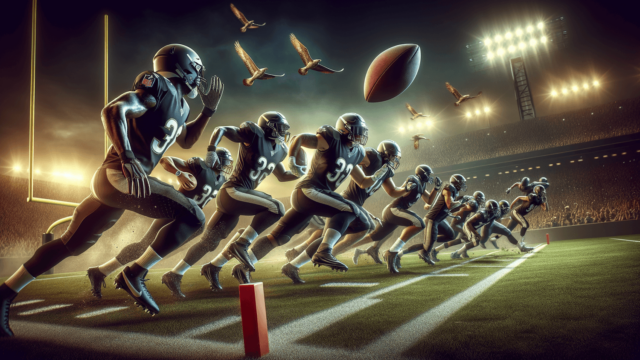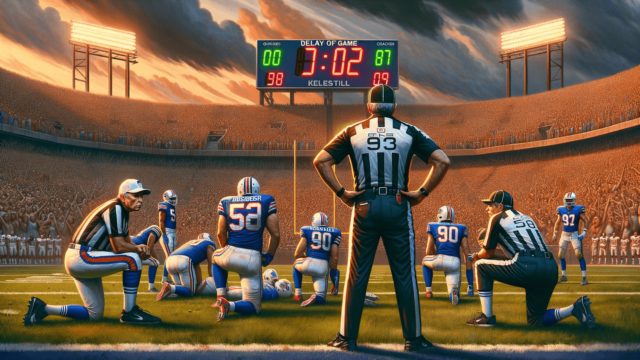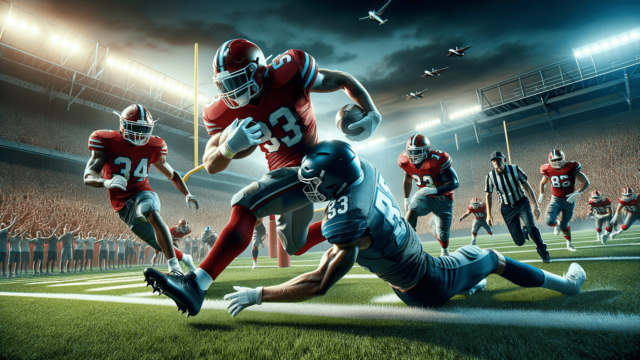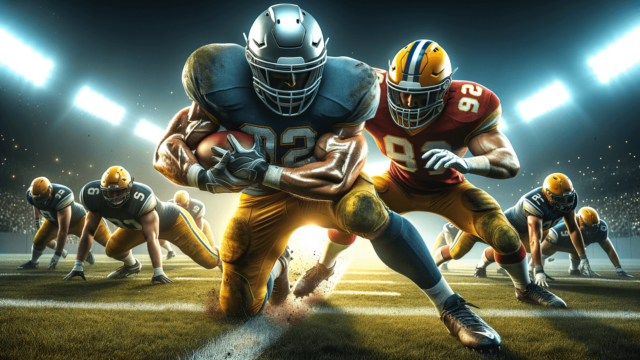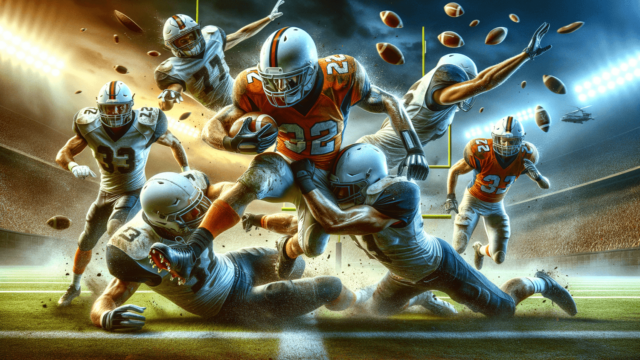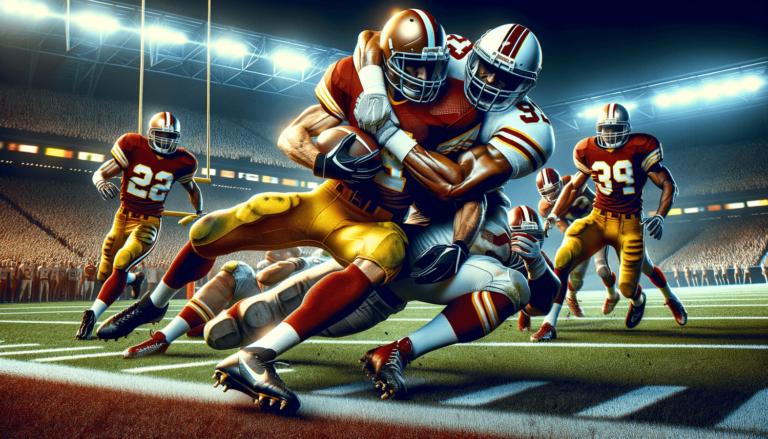
Holding in football refers to an illegal action where a player uses their hands or arms to restrict an opponent’s movement, typically by grabbing, pulling, or wrapping around the opposing player. This is done to gain an unfair advantage during the game. When the offense commits holding, the team is penalized 10 yards from the spot of the foul. If the defense commits holding, a 5-yard penalty is assessed, and the offense is awarded an automatic first down.
Understanding Holding in Football
In the game of football, holding is an illegal action where a player uses their hands or arms to impede an opponent’s movement, usually by grabbing, pulling, or wrapping around another player. This is often done to gain an unfair advantage during the game.
Offensive Holding
Offensive holding is a common infraction that occurs when an offensive player, typically an offensive lineman, illegally grabs or impedes a defensive player aiming to tackle the ball carrier or pressure the quarterback. This violation is usually called to maintain the safety of defensive players and maintain fair competition.
Penalty for Offensive Holding
When the offense commits holding, the team is penalized 10 yards from the spot of the foul. If the holding occurs in the offensive team’s end zone, it results in a safety.
Defensive Holding
Defensive holding takes place when a defender impedes the movement of an eligible receiver before the pass is thrown, preventing them from getting open. This rule is crucial in ensuring a level playing field for offensive and defensive players.
Penalty for Defensive Holding
If the defense commits holding, a 5-yard penalty is assessed, and the offense is awarded an automatic first down. This rule helps to discourage defensive strategies that might stifle the game’s flow and excitement.
Identifying and Avoiding Holding Fouls
Players, coaches, and officials should be aware of the holding rules to ensure fair play and maintain the integrity of the game. Coaches must teach proper blocking and tackling techniques to avoid holding penalties. Players should focus on using their body positioning, footwork, and agility to gain a competitive edge instead of resorting to illegal holding tactics.
Holding Exceptions and Gray Areas
It is important to note that not all contact between players constitutes holding. Engaging an opponent by extending the arms and keeping the hands inside the opponent’s frame is legally allowed. Additionally, grabbing the jersey or pads in an attempt to disengage from an opponent is not considered holding if the player’s hands are inside the opponent’s body frame.
Role of Referees in Enforcing Holding Penalties
Referees play a crucial role in enforcing holding penalties and ensuring fair play. They must observe the game closely, keeping an eye out for any instances of holding. It is the referees’ responsibility to determine whether a player’s actions cross the line between a legal block or tackle and a holding violation.
Controversial Holding Calls
Given the fast-paced nature of football and subjectivity in interpreting certain actions, holding calls can sometimes be controversial. Fans, players, and coaches may argue that referees make mistakes or are influenced by external factors. However, the officiating crew is trained to evaluate each situation objectively and make the best decision based on their expertise and experience.
Impact of Holding Penalties on the Game
Holding penalties can alter the dynamics of a football match, often affecting a team’s offensive or defensive strategy. With yardage penalties and loss of downs, holding infractions can hurt a team’s progress, potentially changing the outcome of the game. Therefore, it is essential for players and coaches to understand the rules and avoid holding penalties.
FAQ: Holding in Football
Here are some frequently asked questions related to holding in football, along with concise and direct answers aimed at enhancing your understanding of this fundamental rule in the game.
What is the difference between holding and pass interference?
While holding is an illegal restriction of an opponent’s movement using hands or arms, pass interference specifically occurs when a defender hinders an eligible receiver’s opportunity to catch a forward pass. Both infractions result in penalties, but pass interference is typically penalized more severely due to its direct impact on the outcome of a pass play.
Why does offensive holding result in a larger penalty yardage than defensive holding?
Offensive holding is penalized more severely because it can give the ball carrier or quarterback a significant advantage over the defenders. By restricting the defense from engaging properly, offensive holding undermines the competitive balance of the game. Defensive holding, although still penalized, affects pass plays less dramatically and thus results in a smaller penalty.
Can a receiver be called for offensive holding against a defender?
Yes, a receiver can be called for offensive holding if they illegally impede a defender’s movement and gain an advantage in a physical matchup. This could occur if the receiver grabs a defender’s jersey or arm while attempting to create separation during a route or while blocking on a run play.
Is holding only committed by linemen?
Although holding is most commonly associated with offensive and defensive linemen, it can be committed by any player on the field, including wide receivers, running backs, and defensive backs. Holding penalties can result from any action that restricts an opponent’s movement, regardless of the position of the player committing the foul.
How can players minimize the risk of committing holding penalties?
To minimize the risk of holding penalties, players should practice proper blocking and tackling techniques by maintaining a low center of gravity, moving their feet, and using body positioning rather than grabbing or pulling opponents. Coaches should emphasize the importance of playing within the rules and provide guidance on the correct techniques and strategies to avoid holding violations.
Featured Posts
- No pillar pages found.
